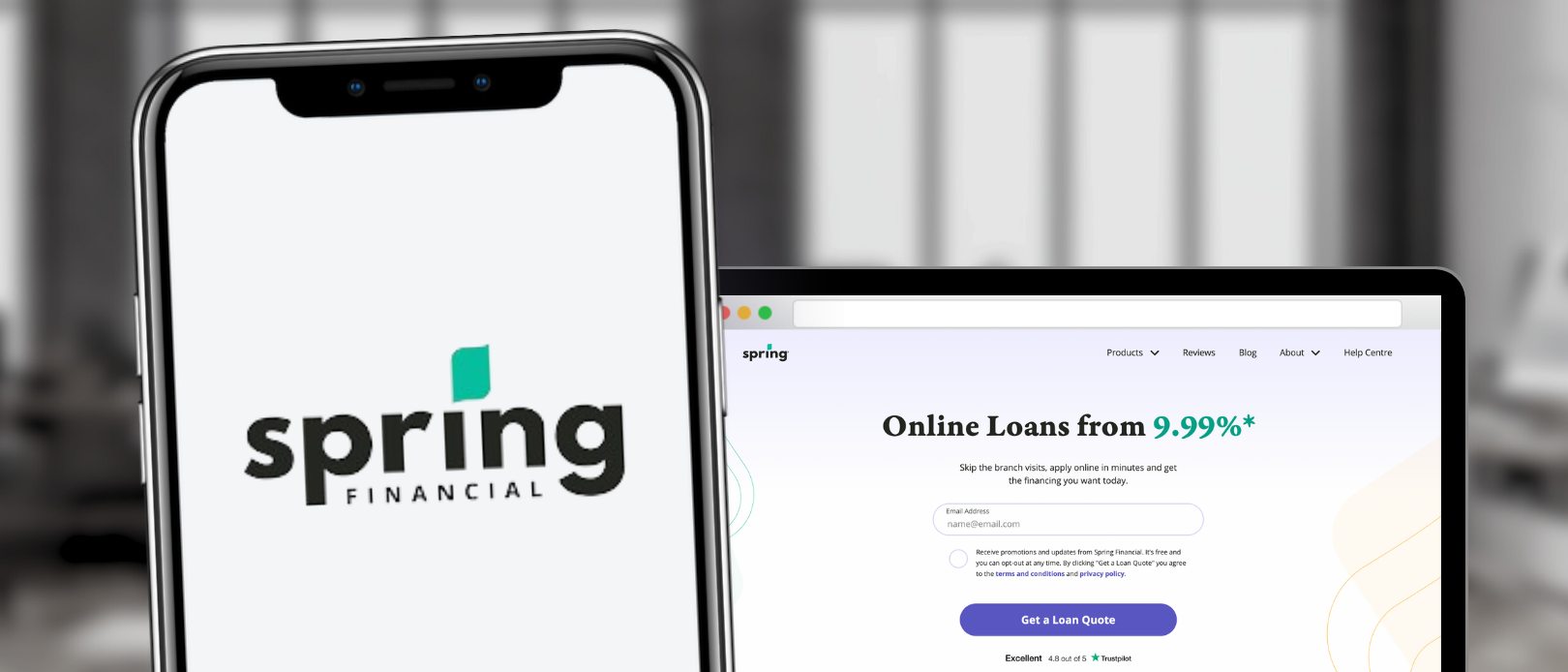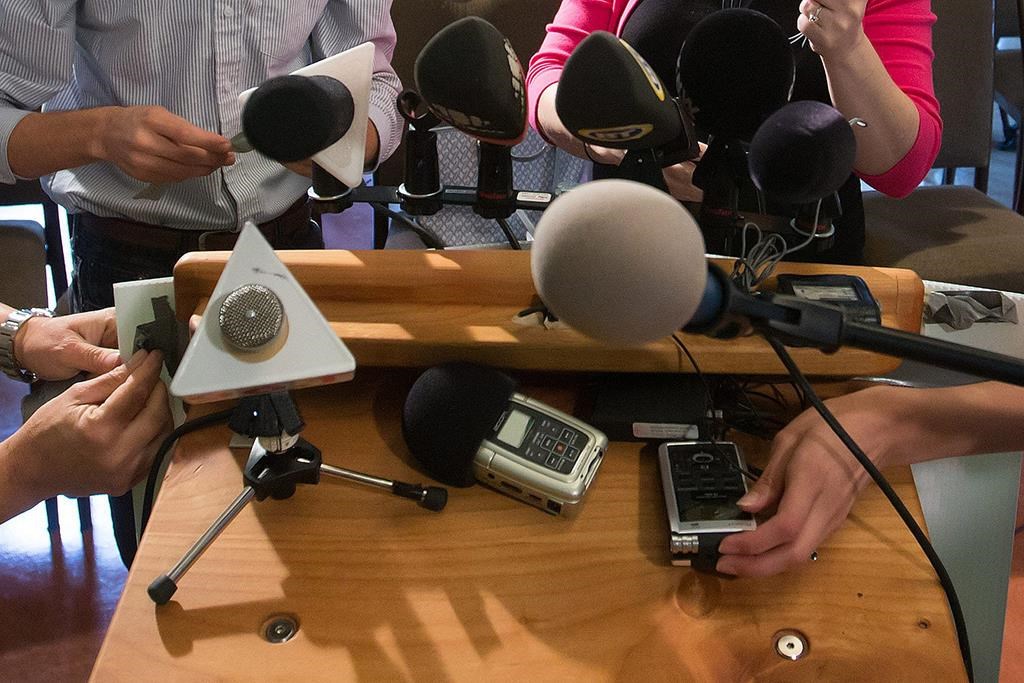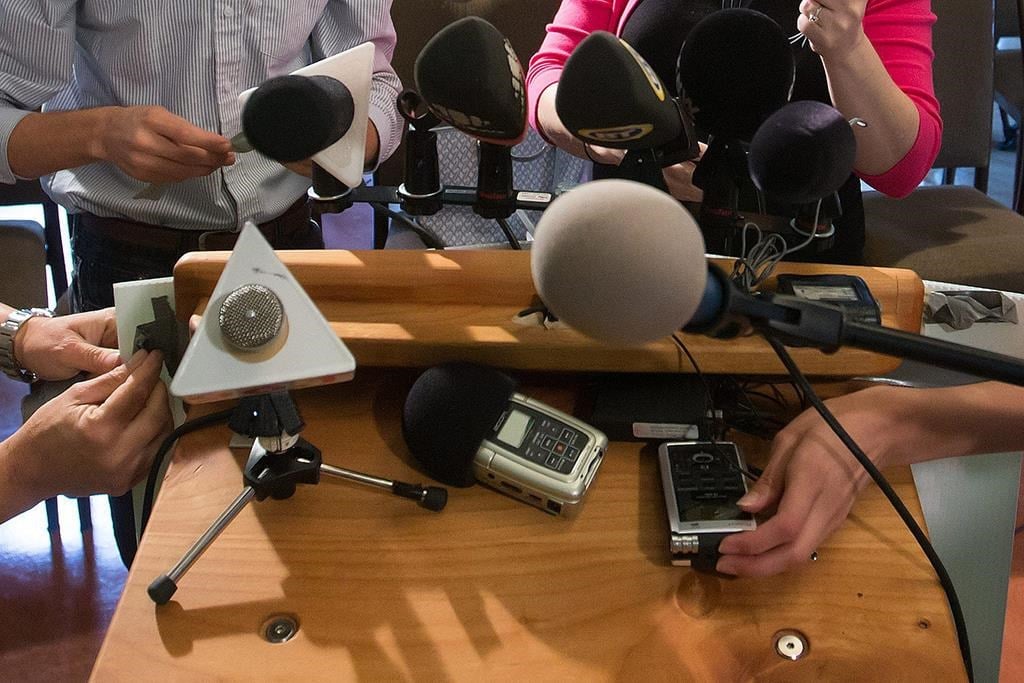
Spring Financial review
Money.ca / Money.ca
Fact Checked: Amy Tokic
Updated: February 21, 2024
Spring Financial brings the loan application process into the 21st century. It offers speedy approvals and the chance to get your hands on much-needed funds as quickly as the same or the next day, without stepping a foot outside your door.
Who is Spring Financial best suited for?
Do you have a less-than-perfect credit score? Spring Financial throws you a lifeline with its flexible eligibility criteria, which may not be typically offered by traditional banks.
Even if you don’t qualify for a Spring Financial loan, it offers a credit building product called The Foundation where you can save toward a future loan. It acts like a savings account and a credit building product all in one (more on that below). But, slip up on those payments, and you might not see your funds at all. Even worse, it could hurt your credit, and you’ll still owe fees and interest.
If you’re boasting a solid financial standing and a credit score, you may want to first inquire at what banks or credit unions can offer because they may have better rates.
That being said, Spring Financial is a solid alternative for those who need an unsecured loan with instant approval, as it sends instant cash that’s transferred directly to your bank account.
Pros and cons
Pros
-
No minimum credit score
-
Multiple loan options with guaranteed approval
-
Excellent customer service
-
Fully online application
-
Credit building and mortgage products
-
Same day deposits
Cons
-
Not available in all provinces
-
Missing some transparency around fees
-
Online application could use better explanation
-
High interest rates
About Spring Financial
Spring Financial’s mission is to redefine how Canadians interact with loan products.
It's no secret that traditional lenders, like banks, often give the cold shoulder to folks with lower credit, leaving them entangled in high-interest payday loan cycles.
Spring Financial has a variety of loan offerings with a wide array of interest rates to meet the different needs of its clients. This ranges from immediate financial relief to mortgages and even the option for building long-term credit.
- The Foundation: A credit building tool.
- Evergreen loan: A $1,500 loan after graduating from The Foundation.
- Unsecured personal loan: From $500 to $35,0000 with rates ranging from 9.99% to 46.99% and terms from six to 60 months.
- Mortgage loan: Spring Financial operates as a mortgage brokerage to get you the best mortgage rates and/or a home equity line of credit from over 40 financial institutions. Mortgages are available in BC, Alberta and Ontario.
Plus, their loans are open-ended, meaning you can settle your debt early without the worry of extra fees or penalties.
Is Spring Financial legit?
Year founded: 2014
Customers: Over 250,000
Loans funded: Over $250 million
Better Business Bureau rating: C- (not BBB accredited)
Better Business Bureau reviews: 1.09/5 stars (average of 154 customer reviews)
Trustpilot score: 4.8/5
How do I apply for a loan with Spring Financial?
Whether online or over the phone, you're guided step-by-step, leading to a smooth approval process. Once you're approved, signing the loan documents is just a click away.
Spring Financial eligibility criteria and required documents
Criteria:
- Age: You must be the age of majority in your province or territory
- Residency: You must be a resident of Canada
- Income: You’ll need proof of income (Spring Financial understands income can vary)
- Bank account: You need an active Canadian bank account
- Credit score: Spring Financial understands you’re more than your credit score, and if you don’t have one, they’ll help you build one.
Documents needed:
- Valid government issued ID (e.g. driver’s license)
- Pay stubs, bank statements showing deposits or letter of employment
- Bank account details
- Personal references (e.g. employer, relative, friend) are sometimes required
Spring Financial loan types
| Type of loan | Fast facts | Get started |
|---|---|---|
| The Foundation loan |
● 100% approval rate
● Credit building product Reporting to Equifax and TransUnion ● $55-$65 bi-weekly payment ● After 12 months, you’ll have $750 in savings and are approved for the Evergreen loan of $1,500 |
Apply now |
| Evergreen loan |
● $1,500 cash advance at 18.99% APR
● $44.31 bi-weekly payment ● Unlock another $1,500 when you pay off the first loan |
Apply now |
| Unsecured personal loan |
● $500 to $35,000
● Bi-weekly or monthly repayments ● Pay it off at any time with no fees |
Apply now |
| Mortgages and HELOC |
● Secured loans against your house
● Operates like a mortgage brokerage to find your best rates ● Good for new mortgages, refinancing, renewing or renovations |
Apply now |
How The Foundation loan works
If you’re a student, new to Canada, have a credit score under 670 or have failed to get approved for loans elsewhere, check out Spring Financial’s The Foundation. It’s a forced savings loan, which means you don’t get any money from Spring Financial.
Here’s how it works.
The Foundation sets up a tradeline on your credit file. You don’t get cash up front. It’s a credit building program that will give you $750 in savings once you’ve successfully made payments for 12 consecutive months. If you’re successful (e.g. no missed payments, all payments made on time and in full) it unlocks the $1,500 Evergreen loan.
To see any benefit, you must commit for 12 months.
If you try to cancel before the 12 months is up, you still owe them the fees and interest they expected to earn. If not, they’ll send you to collections, which will negatively impact your credit score.
To be clear, you pay Spring Financial fees (e.g. $30 NSF fee) and interest, and it reports to both TransUnion and Equifax, the credit bureaus.
Essentially, you’re giving them $750, plus interest and fees, which will amount to about $1,500, to get the value of this credit building tool.
Here’s a table to make it a little easier.
| Term | Loan amount | Total borrowing costs (assuming 19.99% APR) |
|---|---|---|
| 1 year | $750 | $707.68 |
So, $750 (loan amount) plus $707.68 (total borrowing costs) is how much you’ll pay over 12 months, for a total of $1,457.68.Your bi-weekly payments will be $60.74, for a total of $121.47 per month.
You can pay via EFT, e-transfer or automatic debit. We recommend aligning the automatic debit on payday so you never miss a payment.
After 12 months, you’ll have $750 in savings, plus qualify for the Evergreen loan of $1,500, and an improved credit score.
However, you’ve paid over $700 for a credit building product from a company that provides loans to those who can’t get loans elsewhere. This may not reflect positively on your credit in the eyes of a new underwriter.
Another negative to consider is once you’ve completed the program, Spring Financial will close your account, thus eliminating that history and credit history, which is an important factor in calculating your credit score.
The Spring Financial Foundation loan works (even if it’s all your money) but there are programs that help you rebuild your credit for much less money. One such program is KOHO Extra and its secured credit cards.
Check out the KOHO Extra credit card and its credit building program for less than $20 a month. Or read our picks for the best secured credit cards.
The Foundation is not available in Saskatchewan, Quebec and New Brunswick.
How the Evergreen loan works
After successfully completing 12-months in The Foundation, you get a guaranteed approval for the Evergreen loan. This is a cash loan of $1,500 at 18.99% annual percentage rate charged for interest.
The Evergreen loan lasts for 18 months, your payments are reported to both credit bureaus and it can be funded in one to two business days.
A loan of $1,500 with an APR of 18.99% on an 18-month term means your bi-weekly repayment would be approximately $44.51.
Again, you can pay this via EFT, e-transfer or automatic debit, and again we recommend automatic debit on payday so you never miss a payment and get dinged with a $30 Non Sufficient Funds fee.
If you’re in this situation, you might want to consider some of the best low-rate credit cards with 0% interest to finance minor purchases or a balance transfer credit card with a 0% transfer rate.
How Spring Financial’s unsecured personal loans work
Much like a credit card, an unsecured loan is for people who can be trusted to pay it back (i.e. a good credit score). Not that you’ll be rejected for a less than ideal credit score, but you’ll likely face higher interest rates.
Spring Financial’s unsecured loans range from $500 to $35,000 at interest rates between 9.99% and 46.99% with terms between 9 and 48 months.
How much a $5,000 unsecured loan may cost at different interest rates, assuming you will have paid off your entire loan after 12 months.
| Annual percentage rate | Monthly payments | Total interest paid on a 12-month term |
|---|---|---|
| 9.99% | $439.89 | $279.68 |
| 19.99% | $463.24 | $556.88 |
| 29.99% | $487.88 | $854.56 |
| 39.99% | $513.86 | $1,166.32 |
| 46.99% | $532.07 | $1,384.84 |
So, if you borrow $5,000 at 46.99%, expect it to cost you at least $6,384.10. And if you miss a payment, you may face more fees and surcharges.
-1708539556.png)
How Spring Financial’s home equity loans works
If you own a home, you can use it as collateral to get a secured loan, or line of credit where your interest rate will be much lower.
Spring Financial operates as a mortgage brokerage, so it can find you the best rate and payment options to suit your lifestyle (and the reason you’re getting the loan e.g. house renovation, master’s course, debt consolidation, etc.).
Spring Financial complaints
Reports from Better Business Bureau, Trust Pilot and Reddit are scattered with complaints from many people that sound like they didn’t read the fine print.
For instance, many people don’t quite understand The Foundation loan—they don’t give you money, you give them money and it reports this to the credit bureaus.
Sadly, one of their marketing slogans is “same-day approval” and “instant funding” so if you’re desperate for cash, you apply online and there is communication that you’ll be funded instantly.
However, Spring Financial may take your information, as it recognizes that you first need a better credit rating, and automatically sign you up for The Foundation, where you don’t get any money, and instead you owe money right away. And, if you miss that payment you’ll go to collections and take a further hit on your credit score.
So, before you apply for a loan, if your credit score is under 670 and you need immediate cash, you may want to check out our guide to the best personal loans.
Is Spring Financial worth it?
Yes, as a credit building tool with a staged graduation, it can make sense to rebuild your credit over two years to unlock more funds. If you’re in need of instant cash and your credit score isn’t great, consider alternatives like best personal loans for bad credit.The worst option will always be payday loans who are predatory in nature.
Disclaimer
The content provided on Money.ca is information to help users become financially literate. It is neither tax nor legal advice, is not intended to be relied upon as a forecast, research or investment advice, and is not a recommendation, offer or solicitation to buy or sell any securities or to adopt any investment strategy. Tax, investment and all other decisions should be made, as appropriate, only with guidance from a qualified professional. We make no representation or warranty of any kind, either express or implied, with respect to the data provided, the timeliness thereof, the results to be obtained by the use thereof or any other matter.





